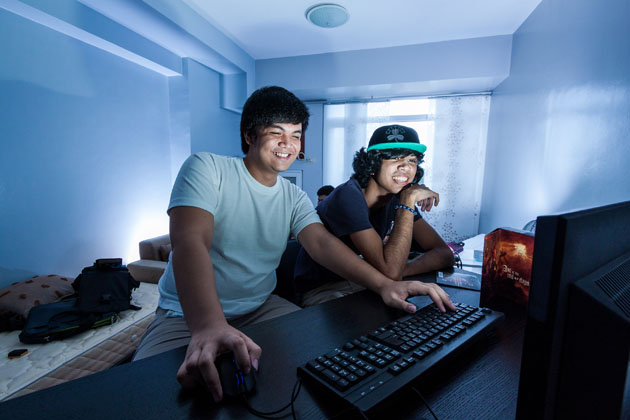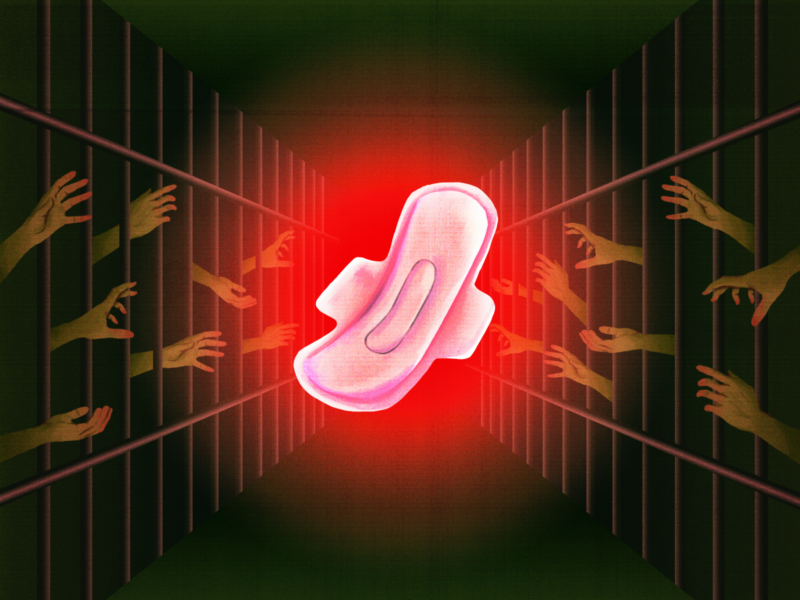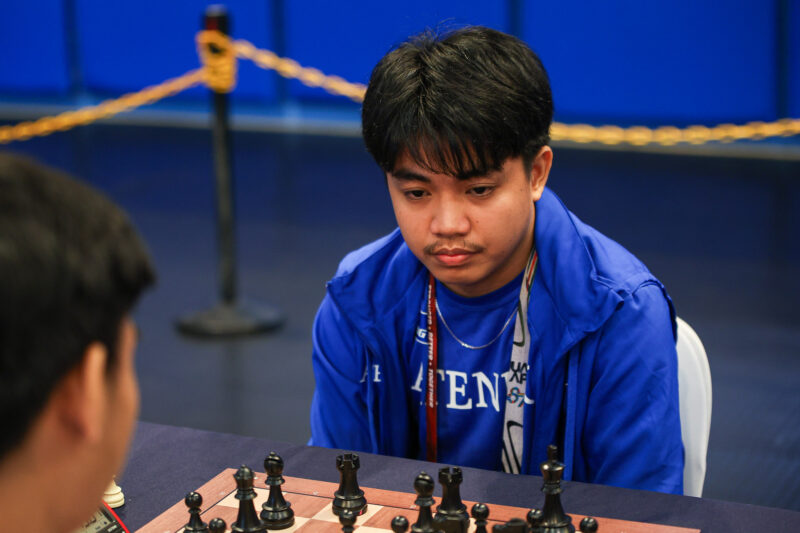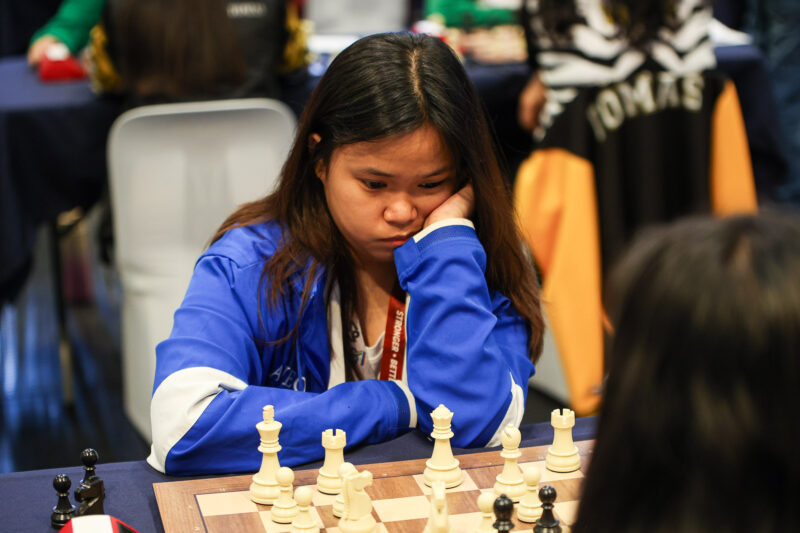A guttural growl resounds behind you. You hold up your axe, ready to swing at the slightest hint of movement in the darkness. Two angry flames quickly flash by, which you soon realize are the eyes of a demon.
You are playing Diablo III, one of this year’s hottest video game releases. The game broke pre-sale records and became the most ordered computer game in Amazon.com history. Video game enthusiasts the world over eagerly anticipated the game’s release.
Gaming offers an alternate world of exploration and seemingly limitless possibility, but it doesn’t always end in a glorious video montage. In games like Diablo III, players plunge into the depths of Hell. But if they can’t control the demons of gaming, they may get a lot more than what they asked for.
The sanctuary of the commune
Diablo III is a fantasy role-playing game (RPG) released by Blizzard Entertainment. In the game, players must defend the High Heavens from the demons of Hell. They may either play solo or in teams of four, allowing players to experience the different flavors of game play.
The communal aspect of the game and its peers adds a notable dimension to the gaming experience. Video games allow people to relate to each other on a new level, as they must trust each other to cooperate and survive. Over time, these bonds are strengthened, which in turn, enriches game play. “Internet cafe regulars end up getting to know each other and playing together. [In these group games,] it’s really the people who make the experience,” says Carlo Suarez, a junior psychology major and a long-time gamer.
When playing in groups, one can explore the infinite number of roles gaming provides with fellow gamers. JR Calderon, a junior philosophy major and member of the Katipunan Fighting Game Community, says, “We play with friends, even ones from other countries. When we find a game we all love, we pursue perfection by playing as often as we can.”
Many features of today’s games cultivate social interaction. “The majority of games are now made to be played in groups. Gamers can play together even if they are not physically proximate to one another, thanks to online connectivity,” says Sociology and Anthropology Department faculty member Manuel Enverga III. Gaming allows social groups to bond, but in some cases, this may also backfire.
Into the inferno
Last school year, a psychology thesis by Ateneans Anton Dela Fuente and John Reuben Ferrer investigated what causes gaming compulsion. It revealed that the communal aspect of gaming was one of the key motivators of obsessive game play.
The thesis inspected six case studies of gamers who had played World of Warcraft, a fantasy multiplayer online RPG, for at least 28 hours a week. Most of the gamers suffered academically and socially due to gaming; their difficulties included repeating a year level and limiting their interactions outside of the gaming sphere. Ties with gamers who were just as obsessed had a role in the growth of their playing habits.
Social ties push people to achieve that gaming high, even if it entails real-world suffering. Gamers may invest a lot in gaming equipment, leaving them with little money for food. Some may withhold sleeping for days on end. “[Since receiving Diablo III a week ago,] I’ve played a total of 67 hours. I play more than I sleep,” says Ramon Ramiro, a junior information technology entrepreneurship major. “It’s really frustrating and I’ve honestly debated about receiving therapy to sort my priorities out.”
However, a disregard for the communal aspect of gaming fosters high levels of competition. Jeremy Joson, a sophomore communications technology management major, who has been gaming since grade school, says in Filipino, “Gaming is a way to feel powerful. But I can’t just act the same way in real life.” It’s easy to be entranced by the opportunity to dominate, especially in an environment that doesn’t have the same repercussions as the real world. But in the search for an alternate universe, one may lose touch of reality altogether.
Running from demons
With every quest comes a way to conquer it. Rising up from the throes of compulsion is difficult, but the same factors that influence a player to fall can help him or her recover. Ferrer and Dela Fuente’s study discovered that friendship may also lead a player to quit. If a gamer’s friends stop playing a game compulsively, that gamer is likely to stop as well.
But this depends on what other experiences are present. Failure in academics and relationships is an aggressive factor in letting go. In the study, realizing he was going to fail college served as a wake-up call for one gamer. “[People with compulsion] really have to decide [for themselves] that they will stop,” says Maripaz Ortiz, director of the Loyola Schools Guidance Office.
Sublimating gaming compulsion also helps. Jacob Alava, a junior interdisciplinary studies major, says, “I replaced it with going to the gym and spending more time with my friends and my girlfriend. [Gaming] doesn’t control my life now.” Such lifestyle changes weren’t easy, but they paid off in the long run—Alava, for instance, was able to repair his grades and his relationships with family and friends.
Gaming compulsion also clashes with real life. “Having to pay for rent, food, and other expenses doesn’t leave enough money for gaming funds,” says gamer Sheryl de Jesus, a junior psychology major. The decisions players make at these crossroads dictate whether or not they conquer their demons.
A thousand powers
Gaming has its own power. It serves as a way to seek a commune and to strengthen bonds between individuals. It even has the capability to improve one’s mental state. “Video games are active and require complex cognitive processes,” says Enverga. “Young people who grew up with video games are thought to be able to handle large amounts of data better than their older counterparts.”
But dangers come with toying with it excessively. This duality makes it function like most interests. People can use it to relate to others, or a shared obsession with it can destroy them. In treading the depths of Hell, one may end up ensnared in its clutches.
They say there are two kinds of gamers: those who play to beat the game, and those who play to beat others. It always boils down to power. However, the difficulty with power is you lose it by trying to attain it.









